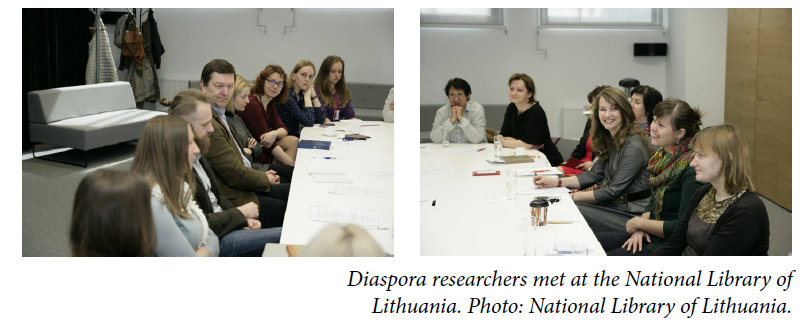 On May 4, 2017, National Library of Lithuania held 4th interdisciplinary diaspora seminar, bringing together researchers from different academic fields. This year’s event, organized by Lithuanian Studies Department, offered a few interesting perspectives on Lithuanian diaspora.
On May 4, 2017, National Library of Lithuania held 4th interdisciplinary diaspora seminar, bringing together researchers from different academic fields. This year’s event, organized by Lithuanian Studies Department, offered a few interesting perspectives on Lithuanian diaspora.
Prof. Dr. Rūta Stanevičiūtė and Prof. Dr. Danutė Petrauskaitė introduced their project, “Nylon Curtain? Lithuanian Musical Correspondence in the Cold War Era.” Together with a colleague Dr. Vita Gruodytė they plan to research the correspondence that took place between musicians living in exile: France, Poland, and USA, and their relatives and colleagues in Lithuania.
Kristina Dūdaitė, researcher at Judaica Department of the National Library of Lithuania, talked about approach to emigration in Jewish and Lithuanian press and literature in inter-war period. She observed that although the two ethnic groups lived side by side, emigration meant to them different things.
A Ph.D. student from Vytautas Magnus University in Kaunas, Egidijus Balandis, who is working on his thesis about sports in Lithuania from the end of the 19 century to the 1990s, noted that in Lithuania, history of sport has been greeted with a lot of scepticism and is still a very underdeveloped field in universities. According to him, currently research in history of sport lacks analytical approach to the sport and its social and cultural dimensions.
Vilnius University doctoral student, Kęstutis Kilinskas, looked at diaspora archives through the eyes of a military researcher. He raised questions about Lithuanian nonprofit military organizations that started to spring in the US at the end of the 19 century and at the beginning of the 20 century, also the inter-war Lithuanian officers and soldiers’ situation and their activities in America.
Marija Bražienė, who is pursuing her MA degree at Vytautas Magnus University in Kaunas and works at the Presidential Valdas Adamkus Library-Museum, presented her findings about traumatic memory and ways of overcoming it in memoirs written by DPs. A Ph.D. student from Vilnius University, Rūta Lazauskaitė, talked about the search of archives of the famous Lithuanian philologist, literary critic and public figure, Juozas Ambrazevičius, who at the end of World War II was forced to leave Lithuania, finally settling in the US.
Professor Dr. Giedrius Subačius, Endowed Chair in Lithuanian Studies at the University of Illinois at Chicago and the AABS president, introduced participants with the Association for the Advancement of Baltic Studies. Another guest, Lituanus editor-in-chief, Prof. Dr. Almantas Samalavičius, invited everyone to publish their articles in quarterly journal dedicated to Lithuanian studies.
The meeting culminated in great presentation by Dr. Gražina Sviderskytė, who talked about the great narrative of Lituanica flight, when in 1933, two American-
Lithuanian pilots on their way to Lithuania crashed and died in Poland. The presenter discussed new methods used in her research and shared discoveries.
All earlier seminars were accompanied by book presentations or film screenings. This year
was no exception. We ended the seminar with a documentary film Remembering My Mother‘s Voice (2015) in a newly opened Movie Theater at the Library. The film is about a world-renowned opera singer American-Lithuanian Arnold Voketaitis. The documentary was presented by the director Agnė Marcinkevičiūtė.
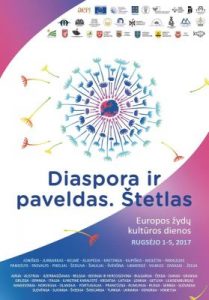
 In 1931, Instituto per l’Europa orientale (Institute for Eastern Europe) appointed him to manage magazine Studi Baltici. In order to be able to do his job properly, Devoto tried to strengthen his knowledge of Baltic languages. In fact, in 1933, he went to Lithuania to study Lithuanian. While he was there he also taught at the University of Kaunas for about two months in French and probably Italian. Devoto travelled North twice, where he met some of the greatest Baltic scholars of that time. Because of the war, in 1942 the magazine was temporarily closed. In 1952, it started to be published again. Its last issue came out in 1969.
In 1931, Instituto per l’Europa orientale (Institute for Eastern Europe) appointed him to manage magazine Studi Baltici. In order to be able to do his job properly, Devoto tried to strengthen his knowledge of Baltic languages. In fact, in 1933, he went to Lithuania to study Lithuanian. While he was there he also taught at the University of Kaunas for about two months in French and probably Italian. Devoto travelled North twice, where he met some of the greatest Baltic scholars of that time. Because of the war, in 1942 the magazine was temporarily closed. In 1952, it started to be published again. Its last issue came out in 1969.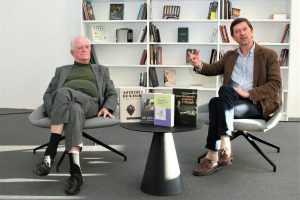
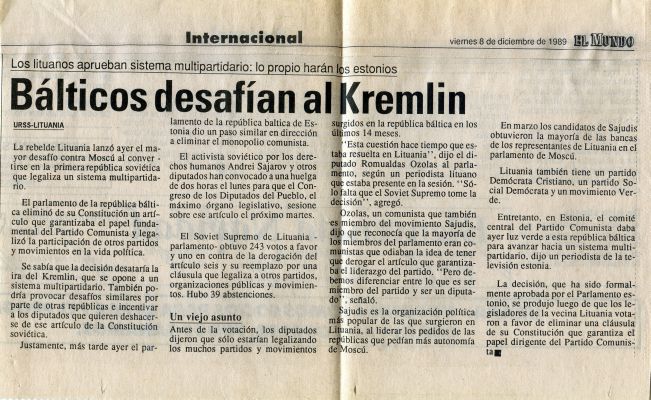 “The rebel Lithuania,” a December 1989 El mundo article begins. Although most people can point to the early 1990s as the era when the Soviet Union fell, we sometimes forget about the internal changes that once made international news. In the late 1980s and early 1990s, Lithuania made strides towards independence while newspapers across the world discussed these historic, unprecedented moves. This phenomenon makes it exciting and fascinating to read an article like this one from late 1989 Spain. The main headline reads “Baltics challenge the Kremlin,” and the article describes how the Lithuanian parliament voted in favor of abolishing an article of the Constitution that guaranteed the political monopoly of the Communist Party and thus instituting a multi-party system. As the article states, “It was well known that this decision would unleash the ire of the Kremlin, which is opposed to a multi-party system. It [the decision] could also provoke similar challenges in the other republics and incentivize the members of parliament who want to undo this article of the Soviet Constitution.”
“The rebel Lithuania,” a December 1989 El mundo article begins. Although most people can point to the early 1990s as the era when the Soviet Union fell, we sometimes forget about the internal changes that once made international news. In the late 1980s and early 1990s, Lithuania made strides towards independence while newspapers across the world discussed these historic, unprecedented moves. This phenomenon makes it exciting and fascinating to read an article like this one from late 1989 Spain. The main headline reads “Baltics challenge the Kremlin,” and the article describes how the Lithuanian parliament voted in favor of abolishing an article of the Constitution that guaranteed the political monopoly of the Communist Party and thus instituting a multi-party system. As the article states, “It was well known that this decision would unleash the ire of the Kremlin, which is opposed to a multi-party system. It [the decision] could also provoke similar challenges in the other republics and incentivize the members of parliament who want to undo this article of the Soviet Constitution.” 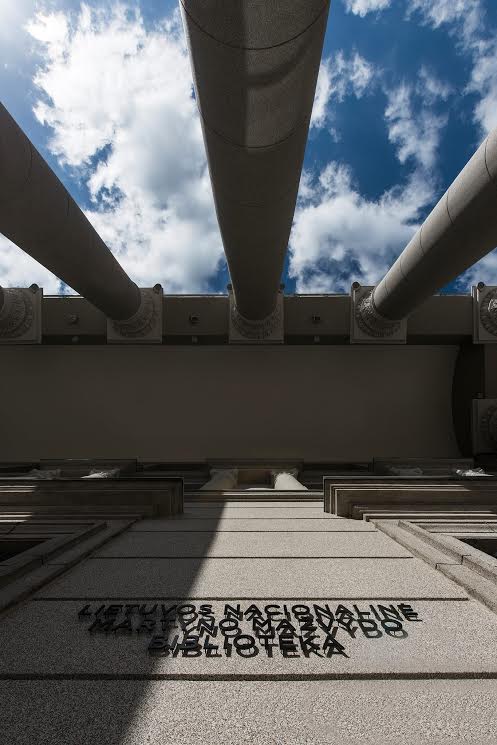
 On May 4, 2017, National Library of Lithuania held 4th interdisciplinary diaspora seminar, bringing together researchers from different academic fields. This year’s event, organized by Lithuanian Studies Department, offered a few interesting perspectives on Lithuanian diaspora.
On May 4, 2017, National Library of Lithuania held 4th interdisciplinary diaspora seminar, bringing together researchers from different academic fields. This year’s event, organized by Lithuanian Studies Department, offered a few interesting perspectives on Lithuanian diaspora.